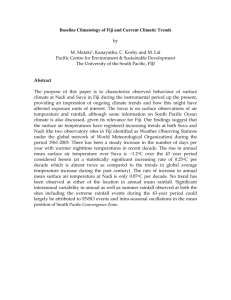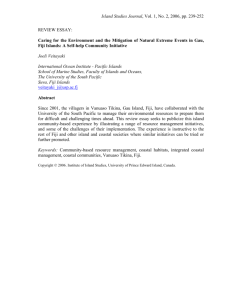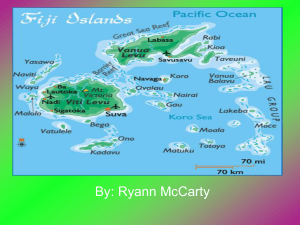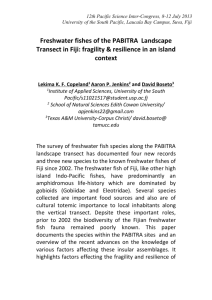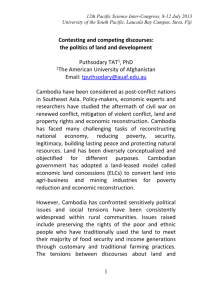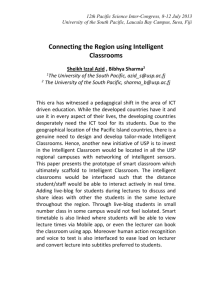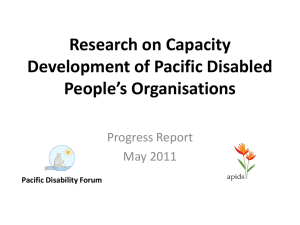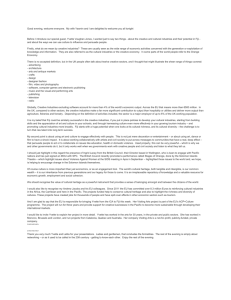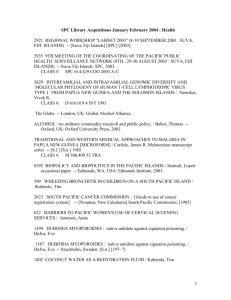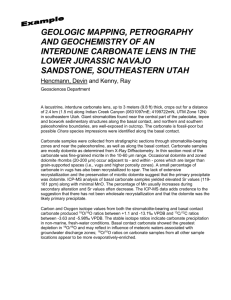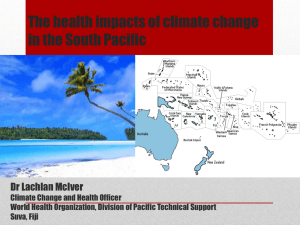Conference Abstract template - 12th Pacific Science Inter
advertisement
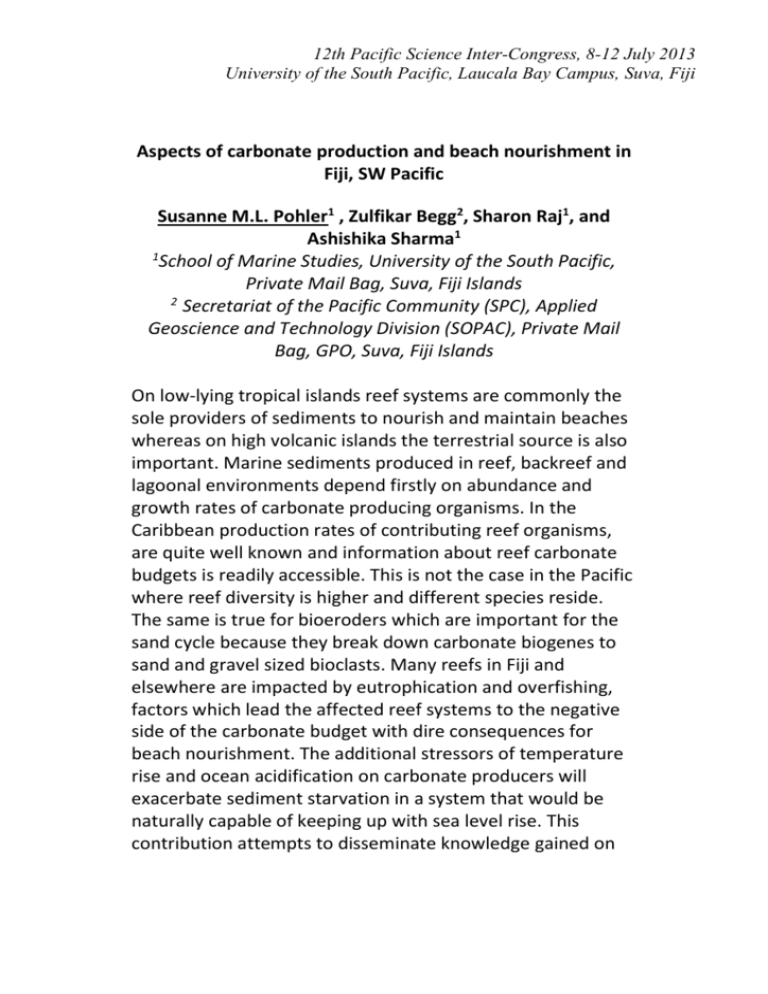
12th Pacific Science Inter-Congress, 8-12 July 2013 University of the South Pacific, Laucala Bay Campus, Suva, Fiji Aspects of carbonate production and beach nourishment in Fiji, SW Pacific Susanne M.L. Pohler1 , Zulfikar Begg2, Sharon Raj1, and Ashishika Sharma1 1 School of Marine Studies, University of the South Pacific, Private Mail Bag, Suva, Fiji Islands 2 Secretariat of the Pacific Community (SPC), Applied Geoscience and Technology Division (SOPAC), Private Mail Bag, GPO, Suva, Fiji Islands On low-lying tropical islands reef systems are commonly the sole providers of sediments to nourish and maintain beaches whereas on high volcanic islands the terrestrial source is also important. Marine sediments produced in reef, backreef and lagoonal environments depend firstly on abundance and growth rates of carbonate producing organisms. In the Caribbean production rates of contributing reef organisms, are quite well known and information about reef carbonate budgets is readily accessible. This is not the case in the Pacific where reef diversity is higher and different species reside. The same is true for bioeroders which are important for the sand cycle because they break down carbonate biogenes to sand and gravel sized bioclasts. Many reefs in Fiji and elsewhere are impacted by eutrophication and overfishing, factors which lead the affected reef systems to the negative side of the carbonate budget with dire consequences for beach nourishment. The additional stressors of temperature rise and ocean acidification on carbonate producers will exacerbate sediment starvation in a system that would be naturally capable of keeping up with sea level rise. This contribution attempts to disseminate knowledge gained on 12th Pacific Science Inter-Congress, 8-12 July 2013 University of the South Pacific, Laucala Bay Campus, Suva, Fiji carbonate production and bioerosion, particularly by coralline red algae, soft corals, foraminifera and boring sponges. Key Words: beach nourishment, carbonate budgets, carbonate production, Fiji Islands.
